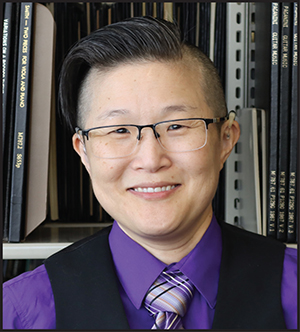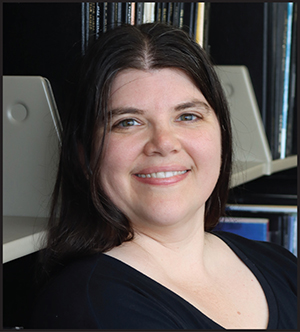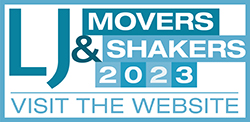Kaycee Choi and Alicia Deal | Movers & Shakers 2023—Advocates
Alicia Deal and KayCee Choi nominated each other for the same reason—their advocacy for d/Deaf (Hard of Hearing/Deaf) culture. The two have spearheaded Dallas Public Library programming for National Deaf History Month in April; Deal and Choi created programs about major league baseball player William Hoy and author and activist Helen Keller, among others, which drew about 100 patrons total.
 |
KAYCEE CHOI
|
 |
ALICIA DEAL
|
|
Photos by Dania Rodriguez |
Understanding, Being Understood
Alicia Deal and KayCee Choi nominated each other for the same reason—their advocacy for d/Deaf (Deaf/Hard of Hearing) culture. The two have spearheaded Dallas Public Library (DPL) programming for National Deaf History Month in April; Deal and Choi created programs about major league baseball player William Hoy and author and activist Helen Keller, among others, which drew about 100 patrons total. What Deal remembers about the experience is “how much I learned about myself and about Deaf culture and history that I never knew before. I’ve been deaf/hard of hearing for a long time, so all of this felt like a revelation to me.” It spurred her to create and lead the city of Dallas’s first resource group for employees with disabilities; Choi also had a role in its creation, and currently serve as the group's secretary.
Choi created an American Sign Language (ASL) class that has taught 40 to 50 people a year about Deaf language, culture, and etiquette. “The students then become allies and advocates, disseminating their newfound understanding and compassion to others,” Choi says.
Both Deal and Choi became advocates because of their own experiences. Deal says, “I knew that it was important to ensure that accessibility was truly equitable across the board for everyone because I know how challenging it can be to speak up for oneself.” Choi tried to hide their disability at first but “came out of the silent closet” to help Deaf patrons when hearing staff struggled to do so. “Understanding and being understood is important to me,” says Choi, who teaches ASL in English and Spanish. “I never want anyone to be a wallflower or afraid because they don’t know what’s going on.”
Deal hopes to increase accessibility for all people with disabilities or other cultural or economic barriers because she knows how it feels to be denied access. She notes that she wasn’t given the opportunity to learn ASL growing up, which makes it harder for her to fully communicate. “I think that libraries could provide an affordable and equitable means of ensuring that everyone, both deaf and hearing, could learn ASL,” she says.
Choi works to increase understanding, whether by demonstrating their cochlear implants and hearing aids to children or giving older patrons resources for getting hearing aids. “As technology closes the gap between the Deaf and hearing world,” they say, “I hope to be a part of that gap-closing as an educator, advocate, and ambassador.”
Add Comment :-
RELATED
ALREADY A SUBSCRIBER? LOG IN
We are currently offering this content for free. Sign up now to activate your personal profile, where you can save articles for future viewing









